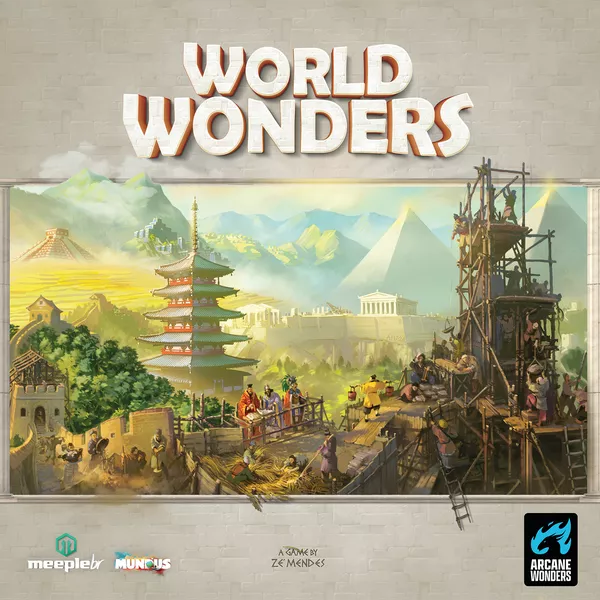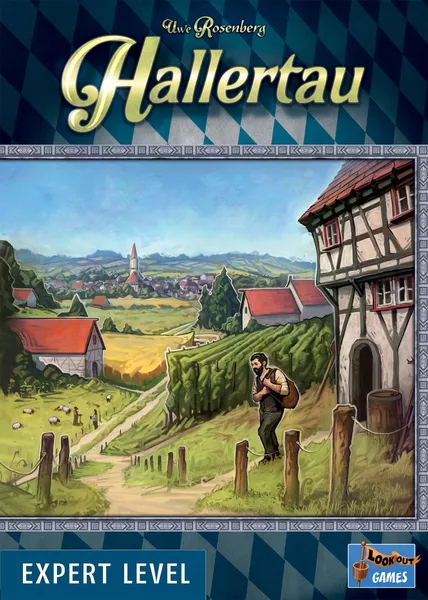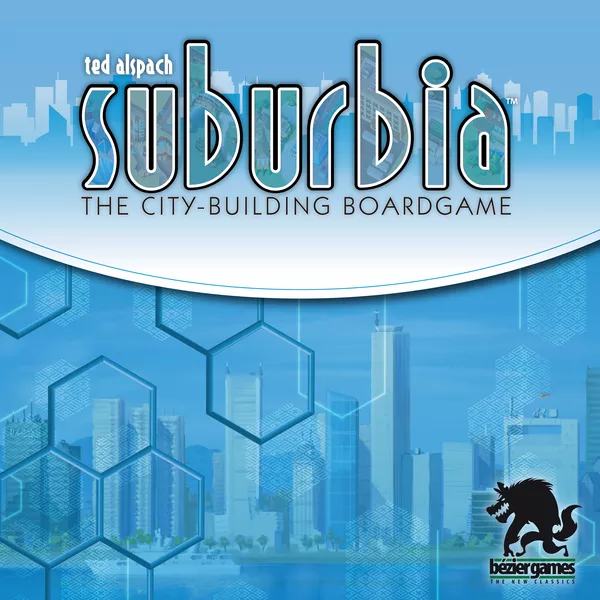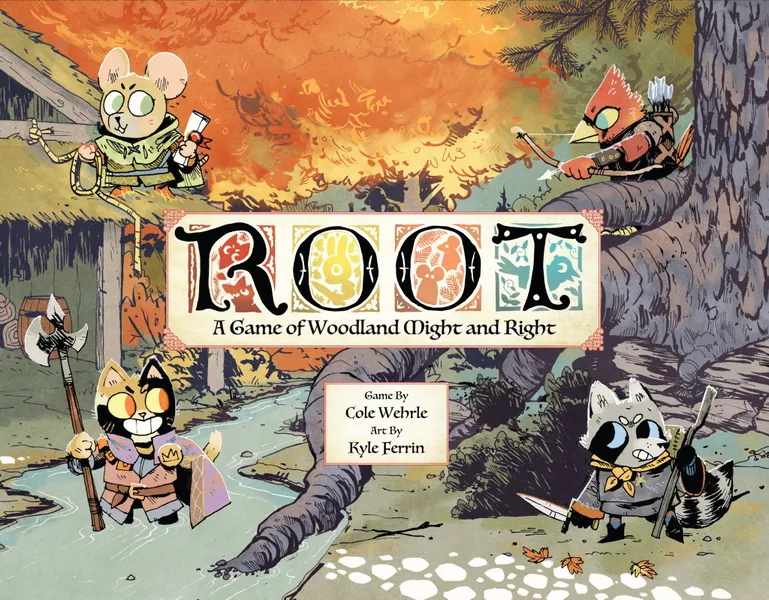Welcome to this week’s gaming post! I’ll admit, like many board gamers, I have trouble getting rid of games. However, there comes a time where I have to look at my crowded shelves, and I have to ask myself, are some of these games worth keeping? What’s the likelihood I play them anytime soon? So this week, I thought I’d discuss five games, in no particular order, that I’m considering letting go of and why. So without further ado, let’s jump into the games!
World Wonders
- Designer: Zé Mendes
- Publisher: Arcane Wonders
- Complexity: Light
- Time: 50-70 Minutes
- Players: 1-5
- Main Mechanisms: Tile Placement

Of all the games on this list, World Wonders is likely the first to go. I wrote a review on the game almost a year ago, and since then, it hasn’t made its way back to the table. At the time, I liked how relatively smooth the gameplay was, but I also had some issues with the game; namely that it felt too long for what it is, and while the large, wooden wonders look very striking on the table, I never felt much competition for building them. Not only did the tiles feel generic, but I also wasn’t eager to play this one again. At the end of the day, if I’m itching to play a tile-laying game, personally I’d much rather pull out Castles of Mad King Ludwig or Isle of Skye.
Hallertau
- Designer: Uwe Rosenberg
- Publisher: Lookout Games
- Complexity: Medium
- Time: 50-140 Minutes
- Players: 1-4
- Main Mechanisms: Worker Placement

I have a bit of a love-hate relationship with Hallertau. On one hand, I like the worker-placement mechanism where actions progressively become more expensive depending on how often they’re used. I also enjoy the farm rotation system where if you continuously plant on the same field, each harvest leads to a lower yield. Plus, the puzzle of figuring out the timing on when to move your community center was really enjoyable. However, the love-hate boils down to how swingy the cards can feel. In some games you can draw the perfect cards that align with your strategy, while in other games, it can feel like the cards are almost useless. The game also has a rich-get-richer problem where if you’re able to play some cards early, it can really jumpstart your engine. For the moment, Hallertau is still safe, but as I mentioned here, it’s a game that has certainly tumbled down my rankings.
Suburbia
- Designer: Ted Alspach
- Publisher: Bézier Games
- Complexity: Medium
- Time: 60-90 Minutes
- Players: 1-4
- Main Mechanisms: Tile Placement

Another tile-laying game, Suburbia, is close to getting culled. I like the theme of building out a city; however, the population mechanic where as your population grows, your reputation and income fall, feels very punishing, especially for first-time players. In addition, some of the tiles, like the ones that give you benefits based on other players cities, don’t feel balanced at different player counts. Like World Wonders, there are other tile-laying games that I’d likely choose over Suburbia.
Deus
- Designer: Sébastien Dujardin
- Publisher: Pearl Games
- Complexity: Medium
- Time: 60-90 Minutes
- Players: 2-4
- Main Mechanisms: Tableau Building

I enjoy the mechanisms in Deus, particularly how as you build out your tableau, whenever you play a new card, you get to activate all of your existing cards of that color. I just wish the game didn’t feel so thematically dry and visually lackluster. Deus feels like a game that could benefit from a second edition with new theming and better production quality. As much as I enjoy the gameplay, this game is competing against so many other mid-weight euro games in my collection that I have to consider how realistic it is for this game to see the table all that often.
Root
- Designer: Cole Wehrle
- Publisher: Leder Games
- Complexity: Heavy
- Time: 60-90 Minutes
- Players: 2-4
- Main Mechanisms: Wargame

I like Root’s gameplay design; however, it’s on the chopping block largely because of the challenges with getting it to the table. The four asymmetric factions included in the base game are all very unique, which makes it fun, but also means that it’s a nightmare to teach. Not only do I have to teach the core mechanics of the game to all players, but I also have to teach each player’s faction, which all play widely different. In addition, all players need to know enough about the other faction’s mechanics; otherwise, you can have the issue that one player just runs away with the game. This is one of those games that truly benefits from playing with the same group of four multiple times because I imagine that’s when this game truly starts to shine, especially when you start to add expansion content. However, personally, since this game doesn’t make it to the table that often, those challenges I mentioned above become a big hurdle. Root is still a keeper for now, but if it continues to sit on the shelf unplayed, at some point I have to ask myself whether it’s still worth keeping in the collection.
With that, those are five games in my collection that are on the chopping black! Do you have any games that you’re struggling to get rid of? I’d love to hear your thoughts on any of the games I’ve mentioned. Happy gaming!
If you liked this post and want to be notified when new content is released, then follow me on Instagram @themeepledigest.
